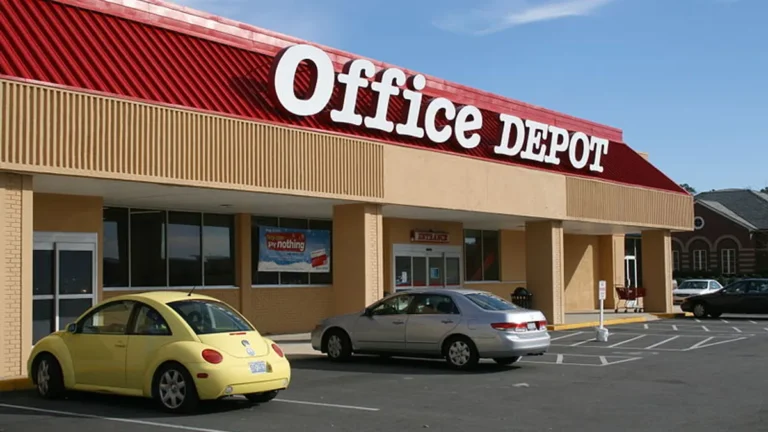Sole Proprietor Business Insurance: A Comprehensive Guide
Running a business is both rewarding and challenging for sole proprietors. While you enjoy the freedom to make decisions and control operations, you also bear full responsibility for any risks your business faces. This is where sole proprietor business insurance becomes essential. This guide will explore what it is, why it’s important, and how to choose the right coverage for your business.
What Is Sole Proprietor Business Insurance?
Sole proprietor business insurance is a tailored set of insurance policies designed to protect sole proprietors from financial losses from accidents, lawsuits, property damage, or other unforeseen events. Unlike larger businesses with multiple owners or shareholders, sole proprietors are personally liable for their debts and obligations. Without adequate insurance, these liabilities could threaten your assets.
Why Is Sole Proprietor Business Insurance Important?
Operating without insurance exposes you to significant risks that could disrupt or even shut down your business. Here are some key reasons why investing in sole proprietor business insurance is crucial:
- Personal Asset Protection: As a sole proprietor, there is no legal separation between your personal and business assets. Insurance can help safeguard your wealth in case of lawsuits or significant business losses.
- Client and Vendor Requirements: Many clients and vendors require proof of insurance before entering into contracts. Having insurance enhances your credibility and opens doors to better opportunities.
- Legal Compliance: Depending on your industry and location, certain types of insurance might be legally required to operate your business.
- Peace of Mind: Insurance allows you to focus on growing your business without worrying about potential financial setbacks.

Types of Insurance for Sole Proprietors
Sole proprietors have unique insurance needs. Here are the most common types of coverage to consider:
- General Liability Insurance
General liability insurance protects your business from claims involving bodily injury, property damage, or advertising injuries. For example, if a customer slips and falls in your store, this policy can cover medical expenses and legal fees.
- Professional Liability Insurance
Also known as errors and omissions (E&O) insurance, this coverage is essential for service-based businesses. It protects against claims of negligence, errors, or inadequate work.
- Commercial Property Insurance
If you operate your business from a physical location, this policy covers damages to your property caused by fire, theft, or natural disasters. It can also protect your equipment and inventory.
- Business Owner’s Policy (BOP)
A BOP bundles general liability and commercial property insurance into one package, often at a reduced cost. It’s an excellent option for sole proprietors looking for comprehensive coverage.
- Workers’ Compensation Insurance
If you have employees, workers’ compensation insurance is usually mandatory. It covers medical expenses and lost wages for employees injured on the job. While not required for sole proprietors without employees, it can still be beneficial if you hire subcontractors.
- Health Insurance
As a sole proprietor, you’ll need to purchase health insurance independently. Consider exploring marketplace plans or association plans for small businesses.
- Cyber Liability Insurance
In today’s digital age, cyber liability insurance is increasingly important. It protects against data breaches, cyberattacks, and other online threats.
Factors to Consider When Choosing Sole Proprietor Business Insurance
Selecting the right insurance involves assessing your specific business needs. Here are some factors to consider:
- Industry Risks
Different industries have varying risk levels. For example, a construction contractor faces more physical risks than a freelance writer. Choose policies that address the specific risks of your industry.
- Business Location
Your location can impact your insurance needs and costs. For instance, businesses in areas prone to natural disasters may require additional coverage.
- Budget
While saving on premiums is tempting, skimping on coverage can be costly in the long run. Balance affordability with adequate protection.
- Policy Exclusions
Carefully review what each policy does not cover. Knowing exclusions helps you avoid surprises when filing a claim.
How Much Does Sole Proprietor Business Insurance Cost?
The cost of sole proprietor business insurance varies widely based on several factors, including:
- Type of Coverage: Policies like general liability are typically more affordable than specialized coverage like cyber liability insurance.
- Industry: High-risk industries like construction tend to have higher premiums.
- Business Size and Revenue: Larger businesses or those with higher revenues may face higher costs.
- Location: Insurance costs vary by state, city, or neighborhood.
On average, sole proprietors can expect to pay between $400 and $2,000 annually for basic coverage. Comparing quotes from multiple providers is the best way to find competitive rates.
Tips for Finding the Right Insurance Provider
- Research and Compare: Look for providers with strong reputations and competitive pricing.
- Seek Recommendations: Ask other business owners in your network for recommendations.
- Check Reviews: Online reviews can offer insights into customer satisfaction and claims processes.
- Work with an Agent: Insurance agents can help you identify the best policies for your needs.
- Bundle Policies: Bundling multiple policies with one provider can save money and simplify management.
Common Myths About Sole Proprietor Business Insurance
- “I Don’t Need Insurance Because I Work From Home.”
Even home-based businesses face risks, such as equipment theft or client lawsuits. Homeowners insurance rarely covers business-related claims.
- “Insurance Is Too Expensive for Small Businesses.”
Many policies are affordable and can save you significant money in the long run by protecting against costly lawsuits or damages.
- “My Business Is Too Small to Be Sued.”
No business is immune to legal risks. Even a single lawsuit can be financially devastating.

Conclusion
Sole proprietors shoulder immense responsibility, and protecting your business with the right insurance is critical to success. Whether you’re just starting or running an established enterprise, investing in sole proprietor business insurance ensures you’re prepared for challenges. Take the time to evaluate your risks, Research, and policies, and choose coverage that offers peace of mind and financial security. With the right insurance, you can focus on what truly matters: growing your business.






